Sebring bank shooting: Prosecutors continue with rebuttal witnesses in gunman’s sentencing trial
SEBRING, Fla. - Jurors in the Sebring bank shooter’s sentencing trial listened to more testimony from the state’s rebuttal witnesses on Monday.
Jason Demery, a Florida licensed psychologist and board-certified neuropsychologist, was the first to take the stand.
He spoke about an MMPI-3 test, which he said is the most commonly used psychological test in clinical psychology.
Demery also showed the jury how Xaver performed on the test on December 2, 2022.
"There are indications of anxiety and depression at the time he was tested," he testified.
The test is composed of 335 true or false questions which Xaver answered on his own. While doing so, Demery told jurors his stress was more than those of his fellow inmates with a 2.5 standard deviation above their own.
Based on his score, Demery told the jury, "Mr. Xaver shows no problem with impulsivity."
Xaver’s defense attorney, Jane McNeill, questioned Demery on whether he knew Xaver’s background.
"Have you evaluated Zephen or talked to his family or friends," asked McNeill.
"No," Demery responded.
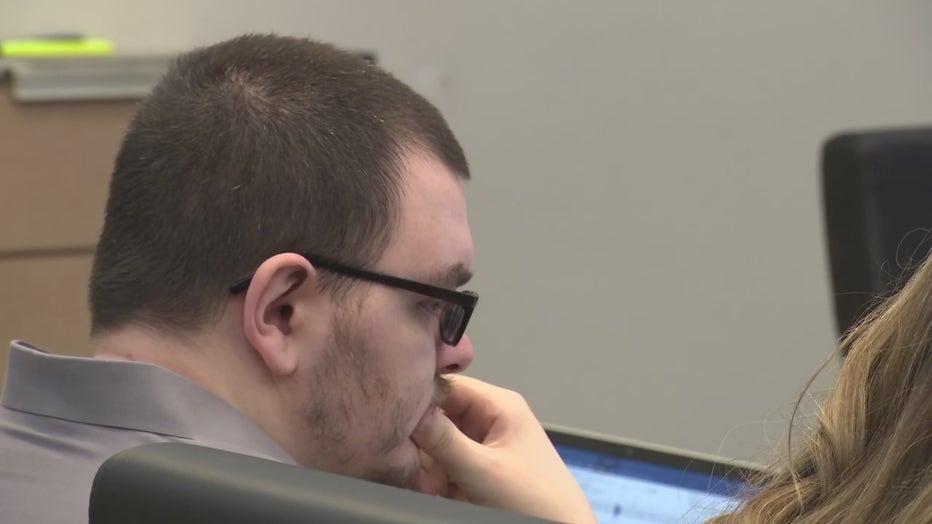
Sebring bank shooter Zephen Xaver listens to rebuttal testimony at his sentencing trial.
Afterward, the prosecution brought Greg Prichard, a licensed psychiatrist, back to the witness stand.
Prichard went back over Xaver’s medical records from past hospital stays for mental health episodes. He pointed out that during most of his hospitalizations, he did not report hearing hallucinations, delusions, or voices.
He told the jury Xaver did not have indications of psychotic behavior, but his actions appeared to be behavioral related. Demery told the jury, Xaver was noted on at least two occasions of going after people who were also in the hospital with him.
"He did not seem to have a lot of remorse for his behavior, which is the most concerning for us," Prichard said.
When he evaluated Xaver, Prichard said Xaver told him he didn’t mind going to behavioral centers.
"When I evaluated him, he said he didn’t mind going into the mental health places. It was more like a vacation," said Prichard.
Prichard told the jury he did not believe Xaver was suffering from a psychotic illness and that he knew exactly what he was doing on January 23, 2019.
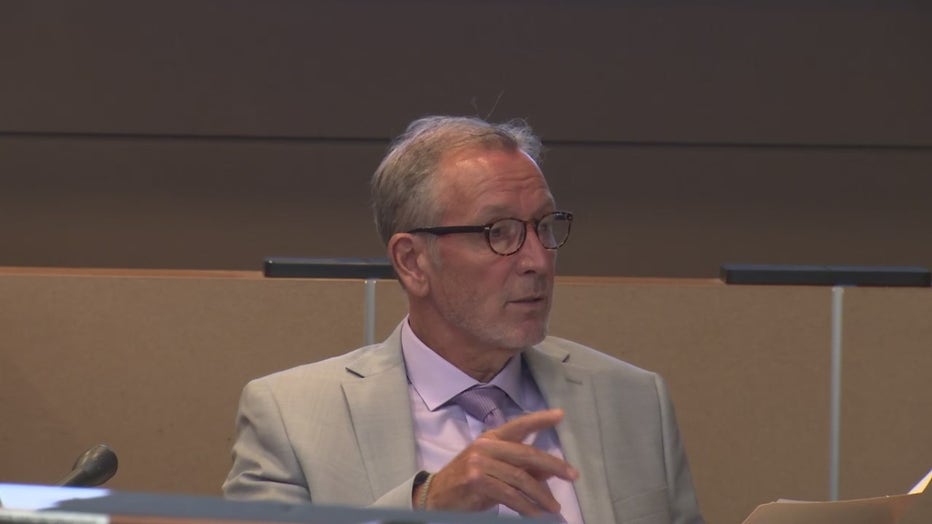
Dr. Greg Prichard testifies at Zephen Xaver's sentencing trial as a rebuttal witness.
"He’s telling everybody, ‘Voices are screaming at me to do this. I sat in my car, I don’t know if it was two hours or two minutes, trying to convince myself not to do it.’ That’s not really what happened," Prichard stated.
For more than two hours, Prichard went over each hospitalization and details of Xaver’s mental history.
"My vision blurs as I see nothing but red. My mind goes thick with thoughts so horrid that even I don’t think that they are good," he read an excerpt of a post from Xaver.
That was part of a post to a group chat called ‘Suicide Isn’t the Solution.’
That was written days before the Sebring SunTrust bank shooting.
Prichard told jurors he had not observed a psychotic illness in Xaver.
Instead, he sees Xaver as someone who had a plan in the works.
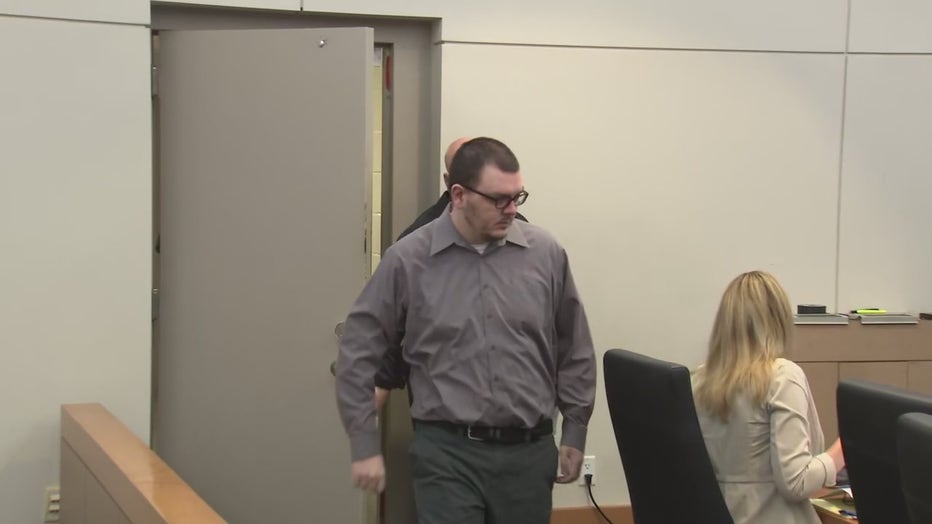
Zephen Xaver walks into the courtroom as his sentencing trial nears an end.
"With getting a protective vest. Protecting yourself from what? It seems like he's trying to protect himself from whatever he has planned," Prichard said.
Hours before the shooting, Xaver texted a former girlfriend and alluded to something he was about to do.
Prichard said it was reminiscent of 2017, when Xavier told another friend he had thoughts of going to a bank in Indiana and taking hostages.
"It clearly suggests on the morning this occurred he already had something in his mind to Google SunTrust bank," said Prichard.
After shooting and killing Cynthia Watson, Jessica Montague, Marisol Lopez, Debra Cook, and Ana Pinon Williams, Xaver called 911 saying voices told him to do it.
Prichard said he does not believe voices were ever-present.
"Between Xaver saying I’m hearing voices, and they’re screaming, and doing all this, but he’s sitting there and sitting rationally with police officers," Prichard shared.
Before breaking for lunch, he told the jurors that Xaver's actions were contrary to having voices screaming at him.
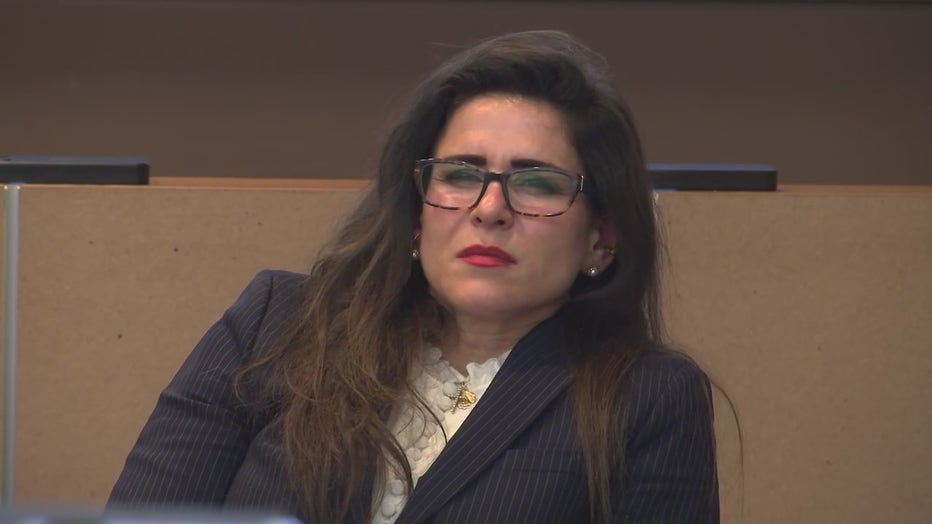
Dr. Emily Lazarou testifies at Zephen Xaver's sentencing trial.
After the lunch recess, Dr. Emily Lazarou, a forensic psychiatrist, testified without the jury present, so the judge could hear what she was going to say and could rule on what she could say to the jury.
The judge ruled she cannot use the word psychopathy or psychopath in her testimony because those are "scary" terms, and she didn’t want to bias the jury in that regard.
On Friday morning, Dr. Marc Glickstein disputed early testimony that claimed gunman Zephen Xaver had a brain tumor. Glickstein said he is 99% confident that Xaver did not have a brain tumor and the small spot seen by a doctor, who scanned his brain solely for the trial and not for a medical reason, was a tiny, benign brain lesion that would not have an impact on his life.
Who is Zephen Xaver?
Zephen Xaver walked into a SunTrust Bank in Sebring on Jan. 23, 2019, and shot four employees and one customer inside. Now, a jury will decide if he will be sentenced to death or spend the rest of his life in prison without the possibility of parole.
Former teachers who took the stand during his sentencing trial described Xaver as quiet and well-mannered but recalled him not doing his homework.
Counselors who testified said Xaver was failing all his classes and was expelled from a school for writing a threatening note to a teacher.
Upon enrolling at another school, Xaver made nearly daily trips to the school nurse complaining about being tired and anxious.
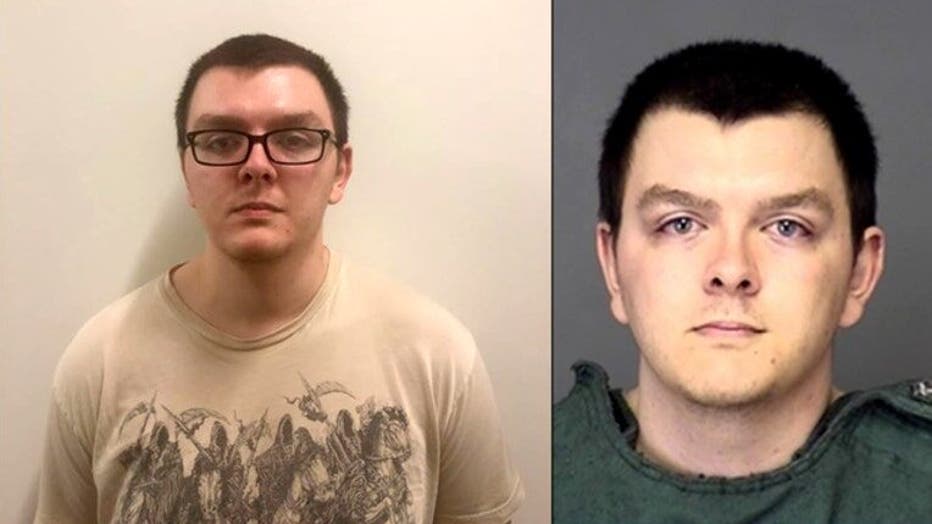
Pictured: Zephen Xaver
A former school nurse testified that Xaver told her his morning medication made him sleepy, but others who testified said he liked to stay up all night playing video games.
His former school nurse testified that he was often permitted to take a nap before returning to class.
When he awoke from one of those naps in 2014, he told the school nurse he had a dream in which he barricaded everyone in the school and began killing his classmates.
The school nurse and the guidance counselor alerted authorities and Xaver was taken to a behavioral health center with a police escort.
RELATED: Sebring bank shooting: Gunman’s mother tells jurors he had a dream about a school shooting
He never returned to the school.
That was not the first time Xaver had been to a behavioral health center.
Witnesses told jurors that Xaver had suicidal and homicidal thoughts and described an incident in which he tried to kill himself with a rope on top of the roof of his father’s home.
Xaver was prescribed medication for depression, anxiety, and sleep. A doctor testified that Xaver was also placed on antipsychotic drugs. However, Xaver’s mother, Misti Hendricks admitted that she pulled her son off of his medication because she thought he was doing better.
Hendricks also told the jury that she struggled with post-partum depression after giving birth to her second son and was initially misdiagnosed as being bipolar and schizophrenic.
Bank shooter's mother takes the stand
Zephen Xaver's mother told the jury that he had struggled mentally when he was a teenager, but she thought things improved when he moved to Sebring.
Hendricks said she tried everything she could to get Xaver into a residential facility for his mental health issues, but he never qualified.
After leaving school, Xaver signed up for the military but did not disclose his mental health history.
READ: Ex-girlfriend of suspected bank shooter says he 'wanted everybody to die'
He told his mother that he left boot camp because he had a busted eardrum. However, a fellow recruit testified that Xaver told her that he was feeling homicidal. She said she told him to go to the medic because this was not the place for him, and he was discharged.
Sebring bank shooting
Xaver moved to Sebring, Florida, and moved in with his mother and her boyfriend in 2018. He got a job as a corrections officer trainee at the Avon Park Jail on Nov. 2, 2018. He quit his job on January 9, 2019, around the same time his mother drove him to buy a gun.
Hendricks testified that her son told her on Jan. 22, 2019, that he was starting a new job the following day and seemed excited about it.
However, on Jan. 23, 2019, Xaver, who was 21 at the time, donned a bullet-proof vest, walked into the SunTrust Bank located along U.S. 27, south of Lake Jackson, and forced five women inside to lock the doors and lie on the ground as he shot and killed them one by one.
After the murders, Xaver called 911.
Sebring shooting trial: 911 call played for jury
Listen to the 911 call Zephen Xaver made after he killed five women inside a Suntrust Bank in Sebring in January 2019.
After being on the phone with the 911 operator for nearly 45 minutes, a crisis negotiator spent more than an hour talking with Xaver before a SWAT team entered the bank and he surrendered.
Investigators say Xaver did not rob the bank and the killings appeared to be completely random.
Sebring bank shooting: Xaver's recorded interview with police
Listen to a portion of an interview between a lieutenant with the Sebring Police Department and Zephen Xaver about what happened before, during and after the Sebring bank deadly shooting. [WARNING: This contains offensive language].
Who were the Sebring bank shooting victims?
Marisol Lopez, Jessica Montague, Debra Cook, Ana Pinon Wiliams and Cynthia Watson were killed execution-style by Xaver on Jan. 23, 2019.
Several jurors wiped tears from their eyes as Xaver sat stone-faced with his head propped in his hand.
Emotional impact statements from loved ones in deadly Sebring bank shooting
Loved ones of people killed in the bank shooting in Sebring several years ago gave impact statements Friday at the sentencing trial for the killer. FOX 13's Kimberly Kuizon reports.
A sixth person was inside the bank at the time of the killings. Former bank teller Benjamin Wysokowski told jurors he was eating lunch and watching YouTube videos in the breakroom when he heard the gunshots go off.
He said he ran out the back door and through the woods, leaving his cell phone behind. He eventually made it to a nearby home and the homeowner called the police.
Bank teller testifies in Sebring shooting hearing
As Zephen Xaver waits to find out whether he’ll be sentenced to death for killing five people at a bank in Sebring in 2019, a teller at the bank who managed to escape testified Tuesday.
Sebring bank shooter’s sentencing trial
Initially, Xaver pleaded not guilty and requested a jury trial. However, he later changed his plea to guilty in May 2023 and wrote an apology note. State prosecutors are seeking the death penalty.
Since he has already pleaded guilty to the murders, Xaver did not get the jury trial he originally wanted. Instead, there will be a sentencing trial and a jury will decide whether he gets life in prison without the possibility of parole or the death penalty.
After two weeks of testimony, both sides rested their case. However, state prosecutors are expected to call rebuttal witnesses on Monday and closing arguments are slated to begin on Tuesday.
Xaver’s attorney has called for a mistrial several times over alleged jury misconduct, a therapy K-9 in the courtroom, and a dirty look a gun shop employee gave Xaver when he entered the courtroom. All of the motions for a mistrial were denied.
During the defense's opening statement, Xaver's lawyer said that the evidence they will present this week is not an excuse or a justification for him shooting and killing five women at the SunTrust Bank, because there is no excuse.
However, the defense is arguing that Xaver’s life should be spared, and jurors should sentence him to life in prison without the possibility of parole.
Xaver's attorneys called witnesses who testified that he had a brain tumor, suffered from mental illness and was physically and mentally abused by his father.
The jury, which was initially made up of 14 people, is down to 12 after one suffered a medical emergency and another had to tend to a spouse who had a medical emergency.
Will Zephen Xaver get the death penalty?
Xaver’s trial will be one of the first high-profile cases in Florida where the death penalty sentence no longer hinges on a unanimous jury verdict.
Florida lawmakers made the change in 2023, shortly after jurors spared the life of the Marjory Stoneman Douglas school shooter in a 9-3 decision.
Florida law now states that a defendant may be sentenced to death if at least 8 of the 12 jurors recommend execution.
State Attorney Brian Haas says all five of the victims‘ families support seeking the death penalty in this case.
WATCH FOX 13 NEWS:
SIGN UP: Click here to sign up for the FOX 13 daily newsletter

